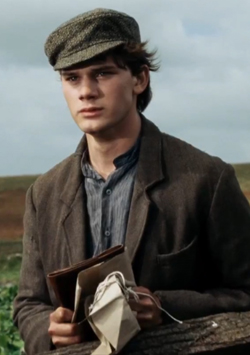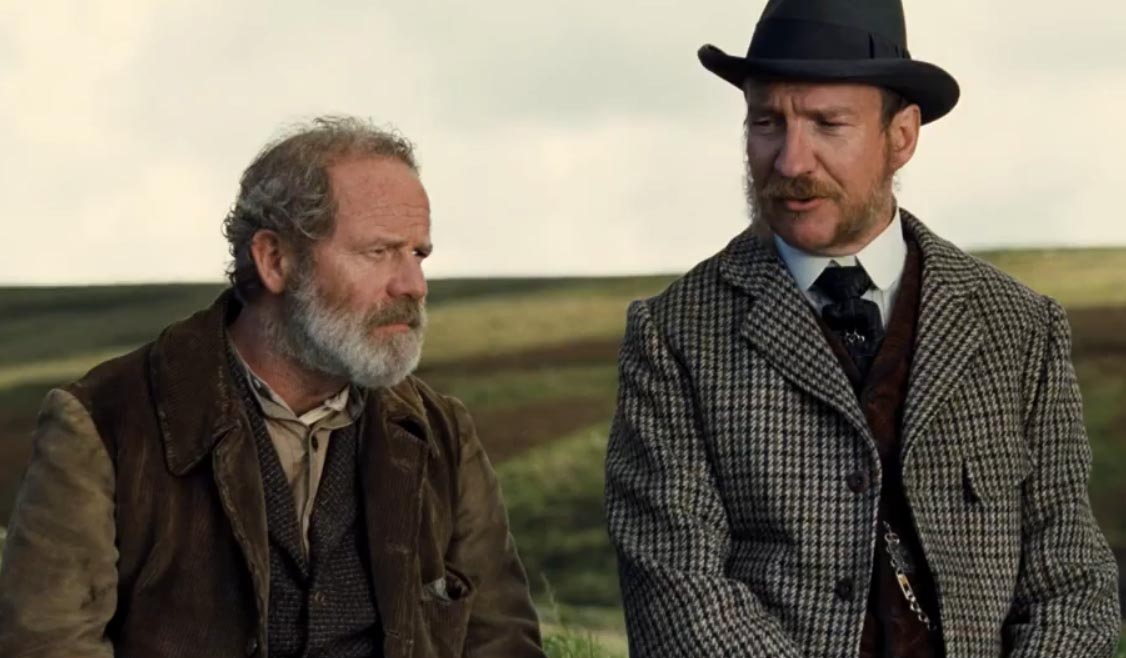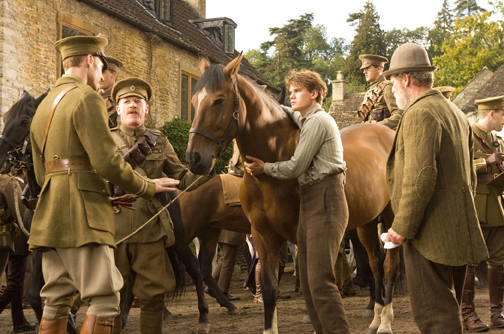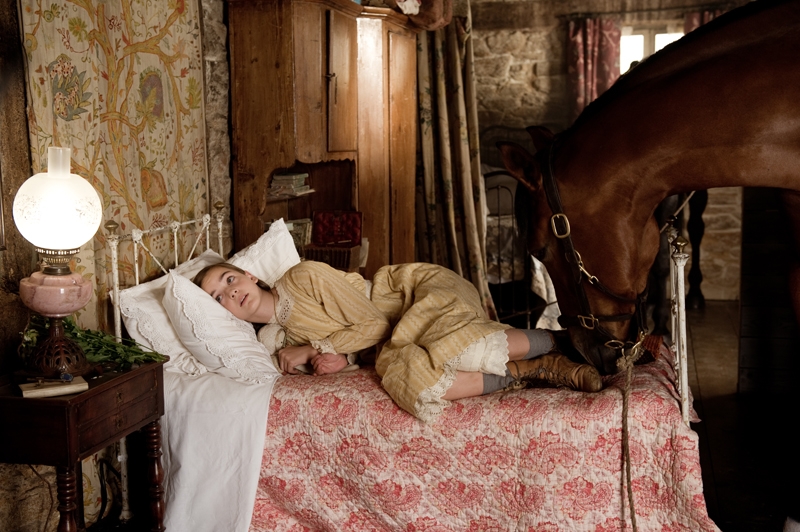My wife and I had “date night” of sorts this past weekend. We left our beloved baby with her parents and went out to dinner and then saw a movie (don’t get too excited, the movie was over at 3:00 pm). We both love animals, so we decided to see the new film entitled:
“War Horse.” I’m a merciless faultfinder of modern films, so I/we might only see two new movies per year in the theaters. Such as it is, I was happy to have seen this one…
 CAPTION: Movie Poster
CAPTION: Movie Poster
The story begins with a foal being born in the English countryside (circa 1913, I imagine) only months before the outbreak of World War I. Some weeks later, an old farmer named Ted Narracott becomes enamored with the expensive thoroughbred at a horse auction he attended in order to bid on a new “plow horse.” During the auction, Ted bids against his rich land lord, Mr. Lyons, and wins the bidding. Ted realizes not only that his new horse isn’t a proper “work horse,” but that because of the cost of the new foal, he’ll be unable to pay his rent in the coming months (to his landlord, the aforementioned Mr. Lyons). Ted returns home with his new animal, which excites his teenage son, Albert…
CAPTION: Albert Narracott
The purchase, however, enrages Ted’s mother, Rose, who gives her husband a tongue-lashing at the possibility of the family “losing the farm” over such an expensive animal. Rose’s insulting words toward her husband are brief, but represent the only injection of “modern cinema” within the entire film…
CAPTION: Ted's Wife, Rose, in "Rad-Fem Mode"
Ted’s son, Albert, adores the horse and promises to teach the thoroughbred to plow a rocky field. After naming his horse “Joey,” Albert begins training him (to be ridden, to take a plow collar, and to come when Albert whistles), which provides a lovely, realistic sequence depicting the love, kindness, and respect that rural whites have for their animals…
CAPTION: Albert & Joey
CAPTION: Albert Riding Joey
As predicted, Albert’s alcoholic father, Ted, has indeed fallen short of his rent payment to the greedy, heartless Mr. Lyons. Albert begins plowing the rocky field so that his father is able to sew his turnip crop. Neighbors gather around the perimeter of the field, laughing and jeering as Joey violently drags the metal plow, along with young Albert, across the rocky hillside field…
CAPTION: Ted is Heckled by Mr. Lyons As Joey Fails to Plow
After a rainstorm, the spectators leave Albert to his misery. But suddenly, the softening ground gives way to the plow, and Joey begins to pull the blade through the stone-ridden terrain. Albert’s father, Ted, is now able to sew the turnip crop, which should provide the family with enough money to pay their debts and save their farm. Weeks prior to the harvest, a violent thunderstorm erodes the soil, uprooting the crops as well as Ted’s chances at financial redemption. Days later, it is announced that England is “at war” with Germany, and thus, Ted sells Albert’s beloved horse, Joey, to high-ranking military captain, Jim Nicholls, in order to save his farm from ruin. Heartbroken, young Albert bids farewell to Joey, tying his father’s military regimental pennant (which Ted earned during the “Second Boer War” in South Africa) to Joey’s bridle for luck…
CAPTION: Joey Sold to Cpt. Nichols
CAPTION: Nicholls Rides Joey to his Death
Captain Nichols is slain in battle several weeks after purchasing Joey, who manages to survive. Albert receives a letter from the military concerning Nichols' death in battle, which he believes has also claimed Joey's life. Joey is captured and begins pulling ambulance cars for the German military. Two young German brothers, both of whom love Joey, desert the war effort and take refuge inside a windmill at a farm in France. The two are found, and executed for their desertion. A young French girl named “Emilie” (who lives with her grandfather) finds Joey, and grows to love him…
CAPTION: Emilie Hides Joey from French Military Farm Raid
I won’t describe the plot any further, as the story does become more exciting from here and I wouldn’t want to ruin the ending. Following this scene, the violent “trench war” of WWI is shown in fantastic detail, with marvelous fighting sequences, realistic explosions, an honest interpretation of horse’s “roles” during WWI, and one of the most brilliant portrayals of “No Man’s Land” I’ve ever seen. I especially enjoyed this “war film” because it did not contain any anti-German propaganda (the words “Germany” and “Keiser” are only mentioned 2-3 times throughout) or “choosing sides.” The film sort of depicted WWI as it should be…a futile battle between white brothers that never should have occurred. Here are some random images...
CAPTION: Joey Excapes, Runs Through the Trenches
CAPTION: No Man's Land
CAPTION: WWI Trench Warfare
CAPTION: Joey Sprints Through Barbed-Wire in "No Man's Land"
For once, Steven Spielberg should be quite proud of his work. It was emotive, inspirational, exciting, realistic (aside from the improbable events surrounding the ending), intelligent, sweet, and even comical at times. There was no political correctness, no anti-white racism, no Jewish agitprop (so common in “war” films), no affirmative action characters, no modernized “dialog,” and only fleeting moments of Female Supremacy (described above).
I highly recommend the film to all my friends at CF.
















